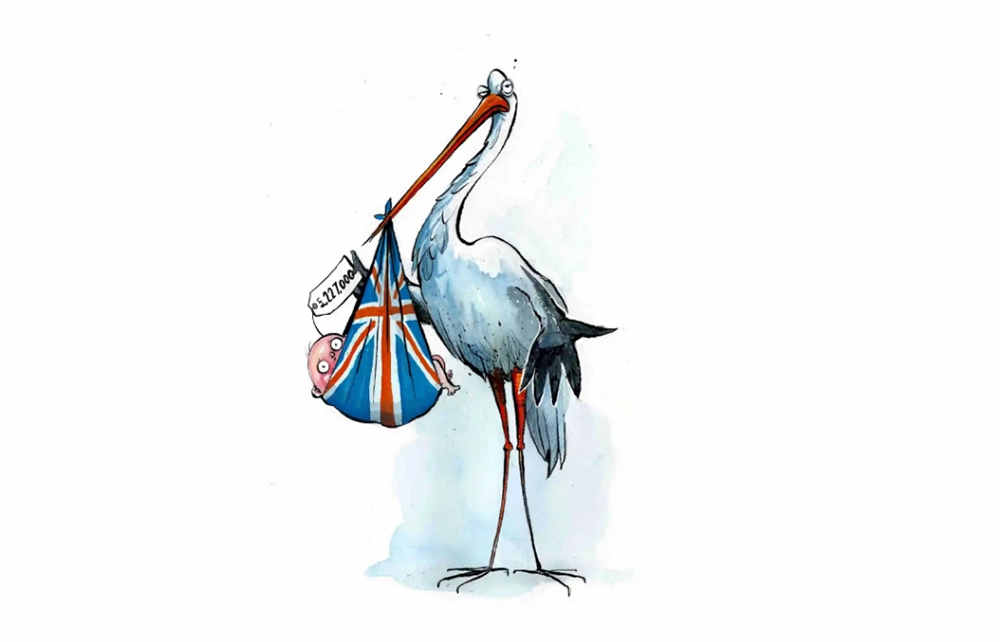Wyndham Lewis once said that ‘the ideas of a time are like the clothes of a season’ – but that, of course, is not how they are seen by liberals today. They are regarded immutable, inviolable, permanent and not up for argument. This is especially the case when they are demonstrably counter-factual, such as in the claims that a rapist is a woman, or when they are truly stupid – such as it being OK for a black actor to play a white role but not for a white actor to play a black role. These are not simply the ‘clothes of a season’, we are told, but the inevitable consequence of Progress, and there will be no going back from them.
State-provisioned childcare is one such consequence of liberal ‘progress’. You will never hear anyone argue against it. They may say that we can’t afford to pay for it, but they never question the aspiration – the desirability of everybody to enjoy free or cheap childcare. In 40 years of hearing this subject being debated I have never, ever heard anybody making the case against a greater availability of childcare, nor question the aforementioned aspiration. It has become one of those inviolable shibboleths associated with liberal progress and thus must not be questioned.
My principal complaint is that once again nobody, anywhere, has asked what effect this will have on the kids
So let me question it for a while. The Chancellor, Jeremy Hunt, has just announced a ‘childcare revolution’, giving parents 30 hours of free childcare for brats from nine months and over. The only arguments against this benevolence on the part of the taxpayer have been structural, or complaints about whether it goes far enough. Hunt wishes to cloak himself in an agreeable array of liberal garments, but also to hasten the return of women who have had children back into the workplace, because we have an acute labour shortage. On the face of it, that aim seems reasonable enough. My objections to the plans, however, are twofold.
First, the Chancellor – like everybody else, it seems – believes that the thing stopping mums from returning to work is simply the cost of having their kids looked after. That may be true in many cases – and childcare has become very expensive. But it may not be the only – or even the main – reason that women wish to stay at home with their children. They may wish to be ‘mothers’. They may enjoy bringing up their children and dare I say may even feel that it was a kind of calling to do so (which of course, scientifically, it is). Many women – I know this, because I have spoken to some – feel horribly torn between the societal pressure to be go-getting, career-minded chicks and another, more elemental pressure to be a full-time mother. The pursuit of both callings is almost always a chimera, because something has to give – and no amount of free daycare will alter that. You are either there, or you are not.
That, however, is not my main objection. My principal complaint is that once again nobody, anywhere, has asked what effect this will have on the kids. In not a single news report have I seen this so much as mentioned. Don’t you think that this is remarkable?
I suspect that the reason it hasn’t been mentioned is that, sadly, daycare is not terribly good for children in general. Back in 1997 the regional government in Quebec announced a $5-a-day universal daycare policy for all parents, making daycare as cheap as a bowl of poutine. Studies carried out since then showed a significant developmental decrease in Quebec children relative to those in the rest of Canada.
The Institute for Family Studies reported (and I apologise for the lengthy extract): ‘By age four-and-a-half, extensive hours in daycare predicted negative social outcomes in every area including social competence, externalising problems and adult-child conflict, generally at a rate three times higher than other children. Family economic status, maternal education, quality of childcare and caregiver closeness did not moderate these effects. But would those effects persist?

‘By third grade, children who had experienced more hours of non-maternal care were rated by teachers as having fewer social skills and poorer work habits. More time in daycare centres specifically predicted more externalising behaviours and teacher conflict, too. Hours spent in daycare centres specifically continued to predict problem behaviours into sixth grade. But by age 15, extensive hours before age four-and-a-half in any type of “non-relative” care predicted problem behaviours, including risk-taking behaviours such as alcohol, tobacco and drug use, stealing or harming property, as well as impulsivity in participating in unsafe activities, even after controlling for daycare quality, socioeconomic background and parenting quality.’
The liberally inclined magazine Psychology Today also investigated the effects of daycare on young children, by analysing a whole bunch of studies. Its findings broadly mirrored those reported by the Institute for Family Studies, suggesting that children who had spent a long time in daycare centres showed ‘increased noncompliance’ and were ‘more likely to manifest behaviour problems later on’. The daycare kids also displayed increased stress. Daycare tended to produce beneficial outcomes only if the child originally came from a totally useless family, and if the daycare facility was of exceptionally high quality.
Now, you can make a perfectly valid argument by saying: ‘Sod the kids – equality of employment opportunity for women and a gender-balanced workforce is far more important.’ But I have not heard that argument being made either. Instead, the outcome for children – and by extension, later for society as a whole – does not seem to matter one jot. It has not been given any thought.
But then the many, many unforeseen consequences of herding women into the workplace and insisting that this is where they should be have always been ignored, denied or played down, lest they divert us from the pursuit of an unobtainable sunlit liberal upland where everybody is equal and happy. The truth is an inconvenient beast.







Comments